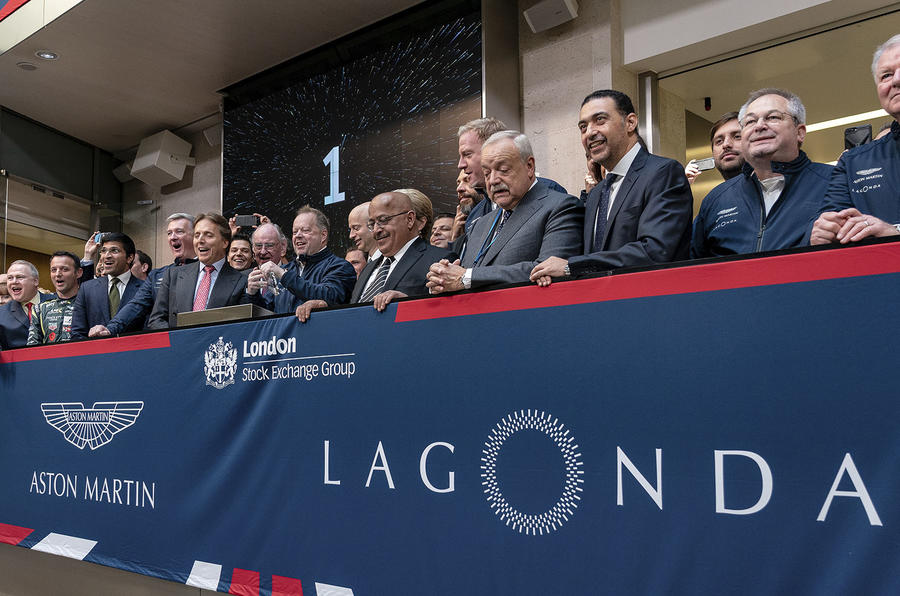Aston Martin has released its entire share capital onto the London Stock Exchange main market, following its initial floatation on 3 October.
The amount of available shares totals 228,002,890, up from the initial 57,000,723 share offering that represented 25% of the company. An initial offer price of £19 per share valued the British car maker at £4.33bn, although early trading saw that amount drop almost 5% on the first day of trading. It has continued a downward slide, with shares trading at £16.06 at the time of writing.
Based on the initial share price valuation, Aston fell just short of being eligible for inclusion in the FTSE 100 index (for the companies listed on the London Stock exchange with the highest valuation).
The company is now trading on the LSE under the ticker 'AML'.
Before the flotation, Aston has revealed a guide price of between £17.50 and £22.50 per ordinary share. Eligible Aston Martin employees, customers and owners' club members based in the UK benefit from a specific share offer. Daimler retains its 4.9% share, locked in for 12 months, while Investindustrial's stake will be locked in for 180 days.
Earlier this year, Aston also published its half-year financial results that show a 14% increase in revenue to just below £450 million, with pre-tax profits rising from £20.1m to £20.8m. At the initial valuation given for the company's shares, it stands a good chance of becoming part of the FTSE 100 as the value increases.
The British supercar maker is currently owned by Italian and Kuwaiti shareholders, alongside other minority investors. Investindustrial took a 37.5% stake in Aston in 2012, with Daimler also owning a 4.9% share. With interest globally, there was debate about whether the company should float its shares in London or New York.









Join the debate
Add your comment
Funny comments
Crazy comments on this story. Aston isn't about cars any more. It is a brand, and the coolest in the market. Stand a Ferrari one side, a Bentley the other, and people will choose the Aston, because the badge is the least embarassing to be seen driving at the traffic lights.
But they'll also happily wear it on a polo shirt, or on the bows of the yacht they buy, that Aston built, or on the nose of the moon rocket (when Aston starts making those). Stock float was great news, I love looking at the cars as they drive past, and I'm now a shareholder in AML.
Aston Martin floats on the Stock Market
Not surprised really I think that by comparing Aston to Ferrari they may have shot themselves in the foot.Ferrari are a true Premium product producing thir own engines and having a very significant presence in the very top echolons of motor sport. Aston have been using other makers engines since the introduction of the DB7 with it's Jaguar emgine followed by the Ford based V-12 and now the Mercedes/AMG units currently used. As things stand they have done well to get production levels as high as they have,but the increase in production dilutes the exclusivity of the marque. I'd rather think that if you've an optimistic view the output of 14000 units per annum it's challenging,if you look at it with a more cynical eye you could think it was fantasy,still it'll be interesting to view the company's performance in five years and see what's come to pass
Sooner rather than later, the
When that happens, a lot of business models will collapse.
Words
Don't you mean 'IF'. SUV's sell because poeple want them especially one's who've experienced owning one before.